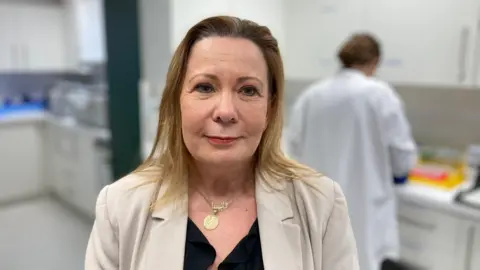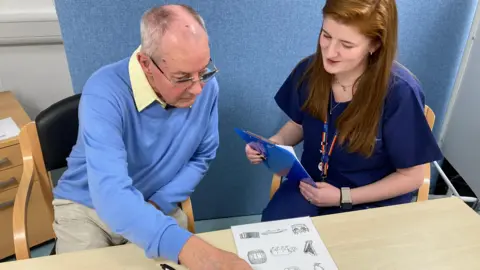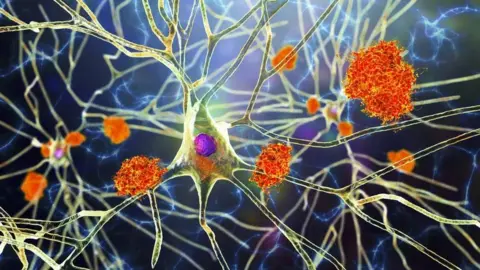Dementia blood test diagnosis trial gets underway
 BBC
BBCA trial to identify fast and accurate blood tests that can diagnose dementia comes at an "exciting" time in the treatment of the disease, according to a leading scientist.
More than 3,800 people from 28 NHS memory clinics across the UK are being invited to sign up to the five-year Read-Out study led by the University of Oxford.
Scientists will assess a variety of blood tests for Alzheimer's disease and other forms of dementia to see how user-friendly they are in clinical settings.
Professor Vanessa Raymont, who is leading the trial, said it was becoming increasingly important for people to be diagnosed early as new drugs were expected "to hit the market very soon".
Part of the study will also look at how affordable the blood tests are and whether they could be rolled out at scale across the NHS.
The most accurate "gold standard" tests for dementia are PET scans or lumbar punctures but only two per cent of people can access the expensive specialist tests.
Most patients are currently diagnosed using memory tests and brain scans.
Ron Hill, 81, from Grove in Oxfordshire was diagnosed with early dementia after being assessed at the Oxford Brain Health clinic located at the Warneford hospital.
He said he started to struggle with things like telling the time about three years ago.
"I just couldn't count, there were situations where I was looking at a clock and I don't know whether it's 11:00, 12:00, it wasn't coming through," he said.
Mr Hill plans to volunteer for the trial to help improve dementia diagnosis.

Scientists think blood tests could help to diagnose dementia at an earlier stage, which is when treatment is most effective.
Two new drugs, lecanemab and donanemab, have been licensed in the UK but are not available on the NHS in England because the health assessment body NICE said the benefits were "too small to justify the costs".
But Professor Raymont is optimistic about the future: "We're in a particularly exciting time at the moment, we've had the first two new drugs in 20 years licensed for treatment for Alzheimer's Disease.
"They're not available on the NHS yet but new drugs are coming that will hopefully hit the market very soon."
The Oxford team will also look at more accessible options, like being able to take a finger-prick blood sample at home and send it off in the post.
The trial will aim to recruit a broad range of people including those from minority ethnic groups, the very elderly and people with other medical conditions.
 Getty Images
Getty ImagesOne blood test will look for traces of rogue proteins in the blood in order to diagnose Alzheimer's disease, the most common form of dementia.
Some tests will also look for potential biomarkers for vascular and frontotemporal dementia, and dementia with Lewy bodies.
Researchers will look at whether the blood tests can help detect these diseases at various stages.
The work is supported by Dementias Platform UK and funded by the Alzheimer's Society, Alzheimer's Research UK, the National Institute for Health and Care Research and Gates Ventures.
A second study will focus on the most promising biomarker for Alzheimer's disease to see whether measuring that can increase the rate of diagnosis in people with early dementia, but also those with mild but progressive memory problems.
You can follow BBC Oxfordshire on Facebook, X (Twitter), or Instagram.
